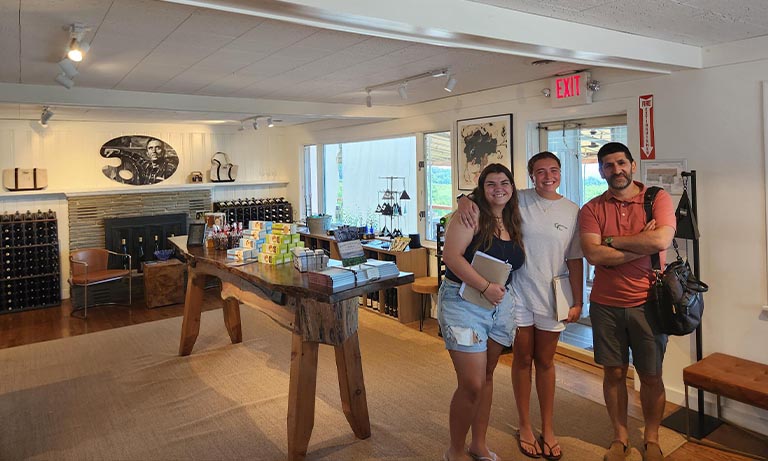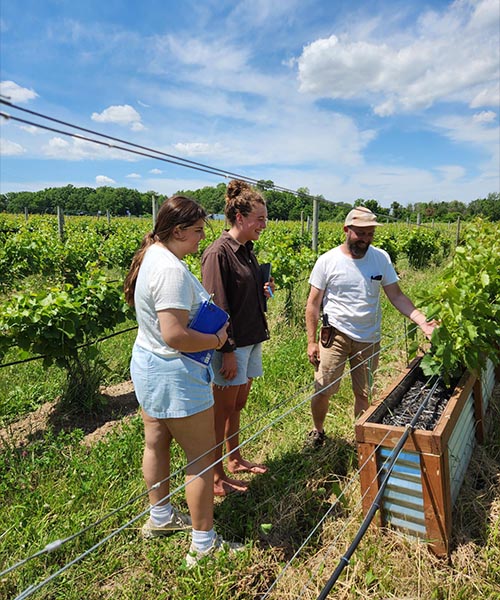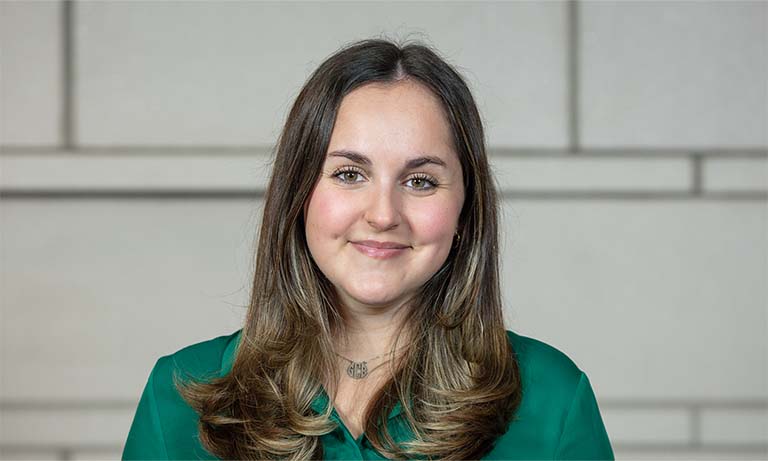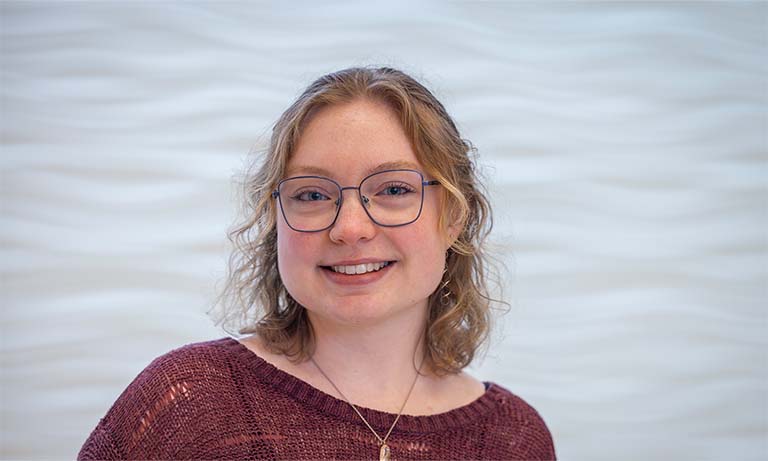
HWS News
22 August 2024 • Research Articulating the FLX Brand
Associate Professor of Sociology Ervin Kosta, Abigail Cole '25 and Piper Polga '26 studied the Finger Lakes Region's brand and its economic growth this summer.

Under the direction of Associate Professor of Sociology Ervin Kosta, Abigail Cole ’25 and Piper Polga ’26 continued a second summer of a research project “Articulating FLX.” The research examines the recent history of winemaking in the Finger Lakes Region and the standing of the region within national and global networks of tourism and economics.
The trio interviewed winemakers across Keuka, Seneca and Cayuga lakes, as well as the leaders of local organizations involved in the promotion of the region. This included the respective wine trails for the three lakes, Finger Lakes Wine Country, Finger Lakes Wine Alliance and the New York Wine and Grape Foundation.
“Articulating FLX” focuses on how a variety of businesses in the Finger Lakes are pursuing economic revitalization while also articulating the Finger Lakes brand that renders the region more visible and legible to tourists, consumers, visitors and investors.
“We are interested in how stakeholders envision their growth strategy, and particularly how they see their impact in shaping the environmental future of the region,” says Kosta. “The second focus of our research was the Greenidge Power Plant that has been operating as a bitcoin mining facility for some time. We followed the trajectory of this site, as well as emerging opposition to it, led by an organization called Seneca Lake Guardian, interviewing its organizers, and conducting participant observation during one of its public events.”
“We’re looking at how the Finger Lakes are starting to become branded as an up-and-coming wine region,” says Cole, a sociology major. “We’ve studied the demographics of Finger Lakes customers, the impact of COVID on wineries, the origin stories of winemakers and winery owners, and the timeline of the emergence of winemaking in New York.”
Through roughly 30 interviews, they concluded that the winemaking industry works in tandem with place-based tourism to increase economic growth. They found that winemaking serves as the thread that articulates the Finger Lakes as a particular economic cluster and that the winemakers in the region are a committed, passionate cohort that wants Finger Lakes wines to be of high quality, deeply situated in this geography and marked by wide accessibility.
“I’ve absolutely loved conducting this research and can’t wait to see what the future brings to the Finger Lakes region!” says Cole.
Top: Piper Polga ’26, Abigail Cole ’25 and Associate Professor of Sociology Ervin Kosta pose for a picture at Dr. Konstantin Frank Tasting Room on Seneca Lake.



